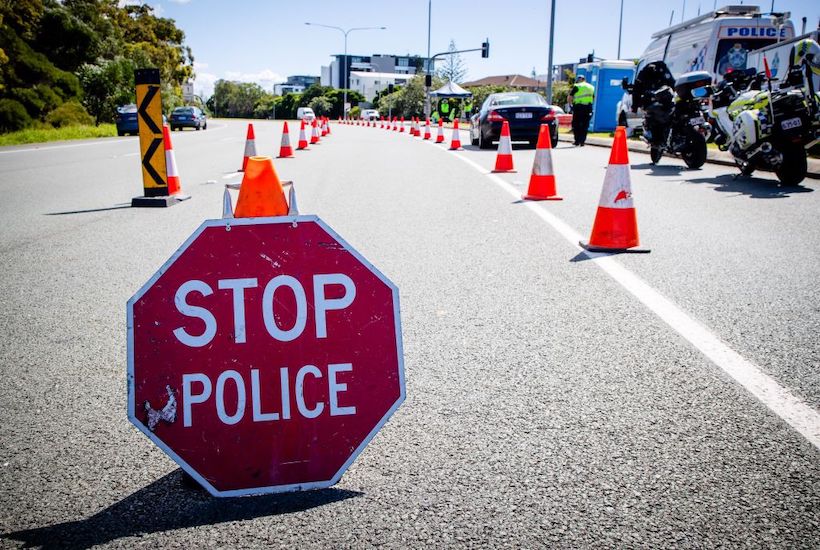There is an old saying about experts and politics: experts are better on tap than on top. In a democracy, that principle is even more important since those making the decisions are supposedly accountable to the people. Experts, on the other hand, are not accountable to anyone.
At the moment, political decisions are being made by medical experts even though the long term effect of those policies would well be a catastrophic economic decline and a ‘Great Depression’ unemployment rate?
Many states have closed their borders to interstate visitors and even forced returning residents into quarantine. Every state has enforceable orders requiring a lawful excuse to leave the home, to travel, to gather with friends or family. These, by the way, are state government policies, not federal ones.
If you think about it, these policies were designed to treat the coronavirus, but they are not medical. They are political and they can be extended permanently. They could be equally used to treat a ‘political’ condition that a government considers dangerous to its political health.
It is the pure breadth of these policies that should cause us concern. We need to ask if there are limits to their powers and if so, they need to be clarified. Every night, state and federal ministers line up to say: ‘Trust us to know when you can visit your family, go to Church and go back to work. Trust us.’
One of the authors of our Constitution spoke about trusting the government: “If you think we should trust the government, there is no point in having a written Constitution.”
Some of you will recall how sacred was the right to assemble and march in the sixties and seventies. Well, the long-haired scruffs who marched and demonstrated against the Vietnam war are today’s locked-down seniors. They sit in silence, happily avoiding death by virus, no longer prepared to tell Daniel and Gladys or Anastacia that the right to assemble or march is sacred.
And where are the civil libertarians? What about the silence of the constitutional scholars. Isn’t an Australian republic supposed to make a difference to our way of life? Then there’s the human rights lawyers who were ever ready to defend the rights of aliens to enter Australia illegally, but have nothing to say about rights of ordinary Australians to go about their business without political/medical harassment?
Or maybe all of those groups are now living their socialist dream? Everyone (except me) paid to stay home; and just as it was in the good old USSR, the shortages are temporary, comrade and civil liberties were never worth dying for.
Well, I know it’s very American, but we have a written Constitution. It gives our Federal government ‘limited and enumerated’ powers over our international borders; but it leaves the regulation of our domestic lives to the limited police powers of the state governments. But these constitutional limits are never mentioned.
Perhaps the reluctance to mention them is because the politicians know that the Constitution was intended to protect the freedom of the Australian people from governments whose access to resources, an armed police force and unlimited funds, makes them all potential tyrants.
But what are the constitutional limits to the police powers? According to the High Court, two sections of the Constitution, ss. 92 and 117, limit the States’ powers. While the essence of section 92 states that trade, commerce and intercourse among the States shall be absolutely free; s. 117 states:
A subject of the Queen, resident in any State, shall not be subject in any other State to any disability or discrimination which would not be equally applicable to him if he were a subject in such other State.
In November 1911, Mr Smithers, a convicted Victorian criminal, was convicted in New South Wales for entering that state in breach of a law which was intended to keep out convicted criminals from other States. (Given NSW history, perhaps the law was designed to reduce competition).
The King v Smithers; ex parte Benson came before the High Court in April 1912 and the NSW law was held to be in breach of the Constitution and invalid. The Court gave a couple of different reasons for that decision, the more interesting of which were by Barton J and Isaacs J.
Barton J opined that the states’ police powers existed to protect public order, safety or morals, but that the NSW Act was excessive. He followed the Chief Justice citing the American case of Crandall v. State of Nevada with approval, reasoning that the creation of a federal union with one government and one legislature in respect of national affairs guaranteed to every citizen the right of access to the federal institutions wherever they are; in other words, a state power could not limit your access to federal institutions. However, he wondered if s. 92 applied might not destroy the right of states to use their police powers.
Isaacs, who was Barton’s nemesis both on and off the Court, thought s. 92 applied. Its reference to ‘intercourse’ was a reference to a personal right to travel throughout Australia ‘irrespective of any State border’. In s. 92, that right would be absolute.
Whichever argument is correct, the case makes clear that the states’ power to prevent all people from crossing borders is either absolutely invalid, or subject to strict limitations.
However, if interstate travel cannot be prevented, then neither can intrastate travel to reach the border. Restrictions on any travel to visit federal institutions would also seem to be unconstitutional. Must you then explain why and where you are travelling? Not unless the right to silence has been abolished.
Ultimately, the lawfulness of government actions will rest with our High Court and that Court has been consistently and unpleasantly revisionist since 1920, so it is impossible to tell what it might do.
But it would be useful at the moment for a wealthy patriot who would be prepared to risk a sum in order to challenge these edicts in the High Court. Do we have one?
Dr David Long is a retired solicitor and economist.
Got something to add? Join the discussion and comment below.
Got something to add? Join the discussion and comment below.
Get 10 issues for just $10
Subscribe to The Spectator Australia today for the next 10 magazine issues, plus full online access, for just $10.


























Comments
Don't miss out
Join the conversation with other Spectator Australia readers. Subscribe to leave a comment.
SUBSCRIBEAlready a subscriber? Log in